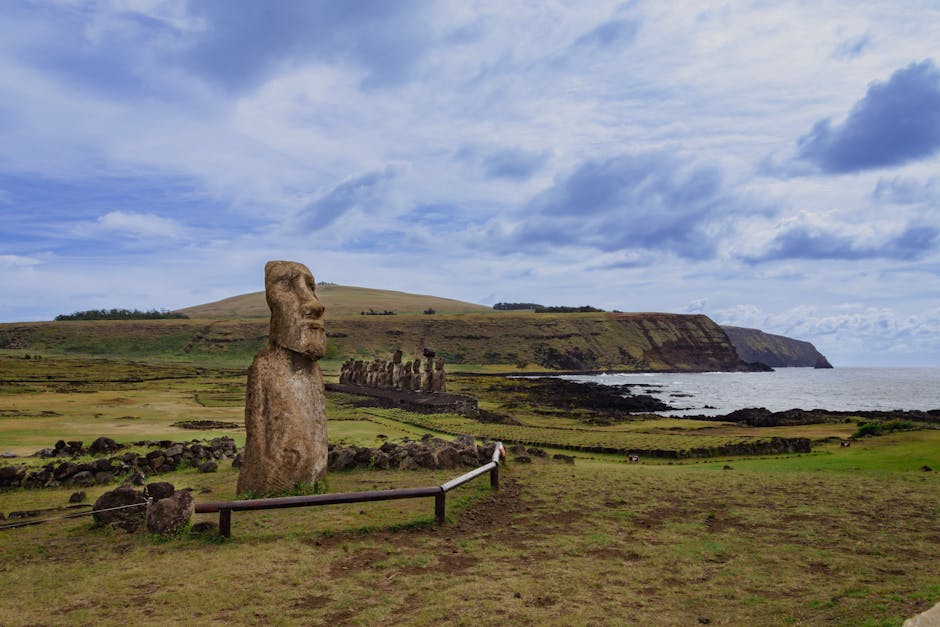The very concept of a “lost civilization” is multifaceted. It encompasses not only societies completely vanished from historical records, but also those whose existence is documented, yet whose precise nature, extent, or even location remains obscured. The allure of these missing pieces of the puzzle is undeniable, drawing both academic researchers and the public alike into a thrilling game of historical detective work.
One compelling avenue for potential discovery lies within unexplored regions. Vast swathes of the planet, particularly the Amazon rainforest, the deep ocean trenches, and remote parts of the Arctic, still hold mysteries yet to be unravelled. The Amazon, for instance, is a verdant labyrinth, harbouring a wealth of biodiversity and an equally tantalizing possibility of hidden settlements. In the past, indigenous knowledge and oral traditions have occasionally hinted at ancient settlements, hinting at potential lost cities concealed within the dense canopy. Similarly, the ocean depths conceal sunken cities and vessels that might reveal previously unknown societies or trading routes.
Furthermore, recent advancements in archaeological technologies provide avenues for uncovering lost civilizations. Ground-penetrating radar (GPR) allows exploration of subsurface features without excavation, potentially revealing the remnants of structures buried beneath the earth’s surface. Satellite imagery and LiDAR (Light Detection and Ranging) are capable of identifying patterns and anomalies on the landscape that might be indicative of ancient settlements or agricultural systems. These techniques are not just for identifying locations, they also permit researchers to glean data on the environment and social structure of the lost society, giving us a richer understanding of their daily lives.
However, the search for lost civilizations must be approached with a critical eye. The desire for discovery can sometimes overshadow the need for rigorous methodology. Misinterpretation of evidence, the allure of sensationalism, and the desire to conjure grand narratives about lost empires can easily lead to misinformation. The possibility of misidentifying a natural formation with a constructed structure or interpreting fragmented evidence in a subjective manner can hinder authentic discovery.
Examining historical accounts is also crucial in the quest. Ancient texts, maps, and oral histories, while often fragmented or imprecise, can serve as valuable clues. They might describe locations, characteristics, or customs that could point towards undiscovered societies. For example, cryptic texts might contain references to lost cities, enabling archaeologists to follow leads and conduct targeted searches in specific locations. Careful scrutiny of these records, combined with modern geographical analysis, can offer insights that would otherwise remain elusive.
Yet, it’s essential to acknowledge that not all vanished societies represent lost civilizations in the grand sense. Many small-scale or ephemeral communities, while important within their context, might not leave a substantial archaeological trace. Their societies, while significant to their communities, may not have the kind of scale or impact to be recognised as a lost civilization in the same way as a major empire. The focus on more substantial, larger-scale settlements should not overshadow the importance of understanding the broader spectrum of human history.
Additionally, the ethical considerations surrounding archaeological explorations are paramount. Respect for indigenous communities, who often hold vital knowledge about their ancestors and ancestral lands, is essential. Their perspectives and input should guide the excavation process and the interpretation of findings. Furthermore, the preservation of discovered sites and artefacts for future generations is crucial, safeguarding the invaluable insights they offer into the past.
In conclusion, the possibility of undiscovered civilizations waiting to be unearthed remains intriguing. New technologies, meticulous analyses of historical records, and dedicated research in unexplored regions all contribute to this quest. However, it’s equally vital to maintain rigorous methodologies, acknowledging potential biases, and prioritizing ethical considerations. The quest for lost civilizations is not merely about uncovering remnants of the past; it’s about understanding the full tapestry of human experience and appreciating the myriad of societies that have shaped our world. The truth is, the search is ongoing, and future discoveries may provide an even deeper perspective on humanity’s journey through time.
